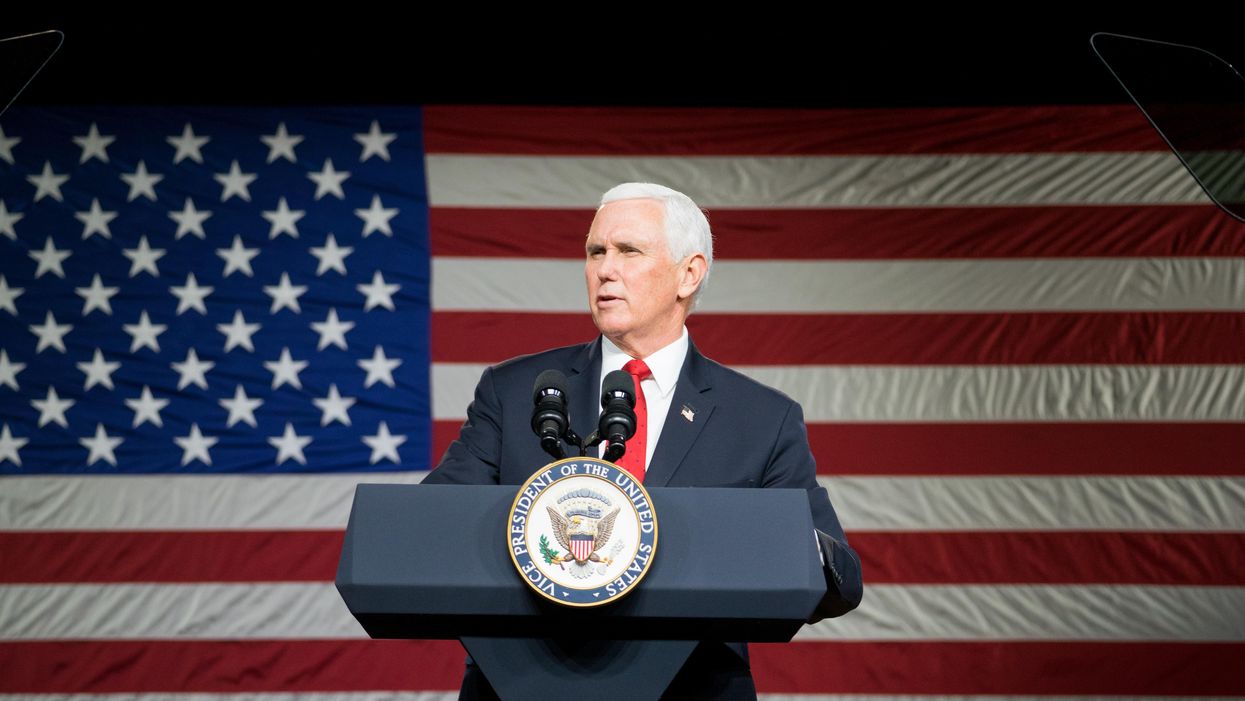President Trump on Tuesday ratcheted up the pressure on Vice President Pence to join in his unprecedented plot to so discredit democracy that they purloin themselves a second term.
Pence continued to remain quiet and out of sight, a day ahead of the joint session of Congress to formally tabulate the 306 legally certified electoral votes making Joe Biden the 46th president and Kamala Harris the 49th vice president. Pence is supposed to preside in his role as president of the Senate and his office made definitive only Tuesday morning that he will show up at the Capitol on Wednesday afternoon.
"The Vice President has the power to reject fraudulently chosen electors," Trump declared falsely on Tuesday, magnifying on Twitter the wholly incorrect belief that Pence can wield his gavel at will to overturn the results of the election.
"Totally untrue," William & Mary law professor Rebecca Green said. "That's just now how the law works."
Trump's tweet about Pence came half an hour after another tweet urging his supporters to come to Washington to protest the Electoral College count, essentially seditious calls by an incumbent president to disrupt the orderly ascension of his successor. Thousands of his allies are already in town, many thousands more are expected, and the D.C. National Guard has been mobilized to keep order.
On Monday night Trump used the final rally of the 2020 campaign — meant to excite supporters in Georgia ahead of twin Senate elections that will decide the partisan balance of power at the Capitol — to apply another measure of public arm-twisting on the vice president.
"I hope Mike Pence comes through for us, I have to tell you," Trump told the crowd, which responded with cheers. "Of course, if he doesn't come through, I won't like him as much."
Pence has made sometimes obsequious loyalty to his boss the defining characteristic of his term. Unless he chooses to duck the moment, the House and Senate meeting to count the votes will put him at the center of the clear choice facing every Republican in the room — between continued fealty to Trump or a sworn duty to uphold the Constitution.
A law enacted in 1877, which sets the rules for the day, makes clear Pence has no choice but to take the second course. The presiding officer's role is that of a master of ceremonies, not an arbiter of disputes. He helps open the envelopes containing the electoral votes of the 50 states and announce their contents. He assigns the House and Senate to spend two hours debating any challenges supported by at least one lawmaker from each chamber. He announces their decisions and, when the disputes are ended, he announces the electoral vote grand totals.
Pence is expected to carry out the script and has not said or done anything to signal he will exceed his limited authority by siding with the Trump loyalists working to delay and disrupt the count with unfounded claims against the integrity of the electoral votes in five states central to Biden's victory.
The vice president "shares the concerns of millions of Americans about voter fraud and irregularities in the last election," his office said in a statement last week, and "welcomes the efforts of members of the House and Senate to use the authority they have under the law to raise objections and bring forward evidence before the Congress and the American people on January 6th."
Should Pence decide at the final hour not to appear (or when he steps of the podium during a session that may well stretch into Thursday morning) the gavel would be taken by the longest serving GOP senator, Chuck Grassley of Iowa. Something similar hasn't happened since 1969, when Vice President Hubert Humphrey attended a foreign dignitary's funeral overseas rather than announce that he'd lost to Richard Nixon.
In recent weeks, Trump has become keenly interested in the presiding officer's role but still does not understand it. Last month, he signaled his approval when GOP Rep. Louie Gohmert of Texas filed a quickly dismissed lawsuit designed to get Pence to overturn the election results. Aboard Air Force One on his way to Florida for Christmas, he retweeted a supporter's entreaty for Pence to refuse to accept the Electoral College results.
Pence — who went to the Capitol on Sunday to meet with Senate Parliamentarian Elizabeth MacDonough — has reportedly sought to explain the process to the president in hopes of diffusing the pressure on him, which clearly has not worked. Pence and Trump met in the Oval Office on Monday just before the president headed to Georgia.




















